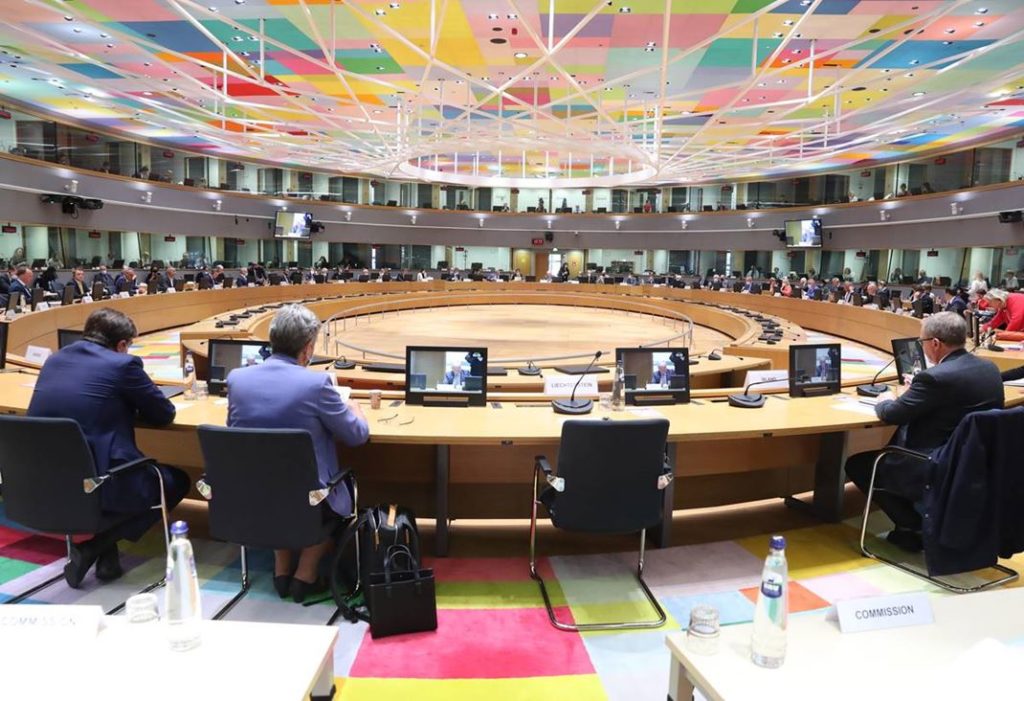The EU Ministers of Justice and Home Affairs met yesterday in Brussels for an extraordinary council meeting to discuss developments in Afghanistan and agreed on a compromise statement that focuses on protecting the EU’s borders.
The meeting dealt with potential implications of the Taliban takeover of Afghanistan in the areas of international protection, migration and security.
Ales Hojs, the minister of the interior of Slovenia, which chairs the EU presidency, expressed satisfaction that the meeting managed to reach a consensus and described the statement as balanced.
“The EU remains committed to supporting vulnerable Afghans, and in particular women and children, both in Afghanistan and in the region,” he said. “At the same time, we are determined to prevent smugglers and human traffickers from exploiting this dire situation by coordinating our response to any illegal migration movements and protecting the EU external borders.”
“As interior ministers, we are responsible for security and protecting EU’s borders,” he explained and warned against terrorist attacks on European soil. It is more urgent and important to provide help to Afghan refugees in the neighbouring countries than to enable them to apply for asylum in the EU.
At the G7 leaders meeting on 18 August, European Commission President von der Leyen announced a scheme for voluntary settlement of Afghan nationals in the EU and referred to the Member States’ “pledging” of humanitarian visas. The issue was supposed to have been discussed at the home affairs council meeting but there was no mentioning of it in the statement.
Resettlement in the EU will apparently be limited to those Afghans (incl. their families) who worked for the EU and the Member States and who were airlifted from Afghanistan before the Kabul airport was closed. Vulnerable groups of people, professional women, journalists and human rights activists, will in future have to apply for asylum in the EU from safe third countries in Afghanistan’s vicinity.
Ylva Johansson, the European Commissioner responsible for home affairs, who had returned from a meeting with the US and the UN in New York, congratulated the Slovenian minister and added at the press conference that the EU’s focus should be to avoid a humanitarian crisis in order to avoid a migration crisis which would affect the EU.
Asked if the council meeting had discussed resettlement in the EU and agreed on any numbers, she replied that nobody can set any numbers and that no resettlement goals were decided.
Instead, she referred to the possibility of legal migration to the EU and mentioned that the EU last year had approved 300,000 asylum applications. The Swedish justice and migration minister Morgan Johansson said earlier in Stockholm that Sweden (the Commissoner’s home country) had increased the share of Afghan refugees eligible for humanitarian visas.
“Sweden is receiving more refugees per capita than other EU Member States and is more ambitious than them,” he claimed and added that Sweden is pushing them to receive more Afghan refugees.
The statement also says that the EU will respond to attempts to “instrumentalise illegal migration” for political purposes and other hybrid threats. Ales Hojs confirmed that this referred to the situation at the borders between Belarus and neighbouring Member States, Poland and the Baltic countries, but did not clarify if Afghan refugees arriving via Belarus will be allowed to apply for asylum.
In an exceptional decision, the European Court of Human Rights decided last week that the Polish and Latvian authorities should provide people stranded at their borders with Belarus with food, water, clothing, adequate medical care and, if possible, temporary shelter. The court is expected to deal later with their right to apply for asylum.
The Commission is monitoring the situation at the border but a spokesperson for the Commission declined earlier this week to clarify if the situation had improved following the court decision.
M. Apelblat
The Brussels Times

